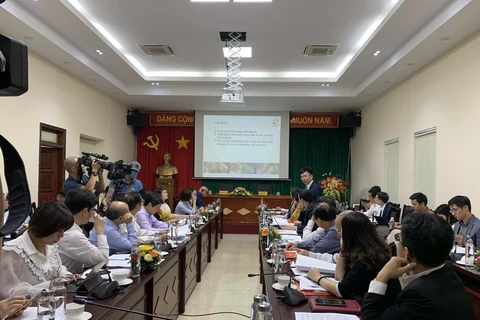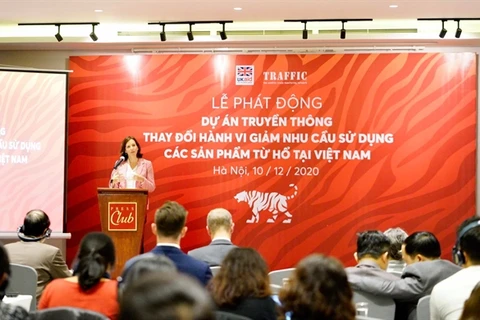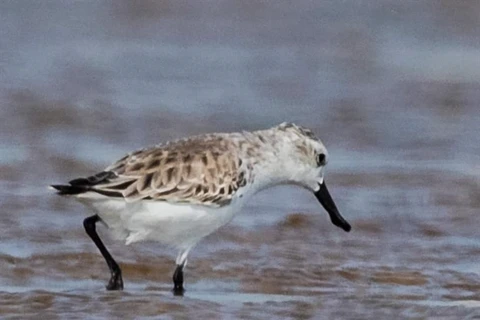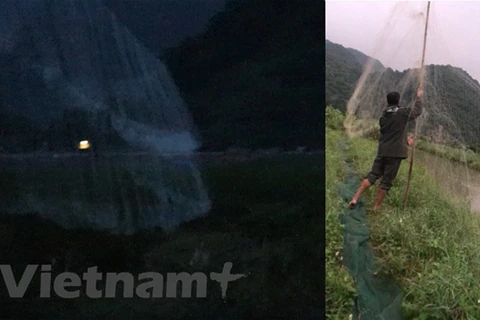Dong Nai (VNS/VNA) - Representatives from 30 tour operators and travel agencies recently signed a pledge to support responsible tourism, nature conservation and wildlife protection during a training workshop at Cat Tien National Park in the southern province of Dong Nai.
The People and Nature Reconciliation (PanNature) said Vietnam’s tourism sector gained an annual growth rate of about 22.7 percent in 2015 -2019, which made the country among the world’s top travel destinations. In 2019, the country recorded more than 18 million international visitors and 85 million domestic travellers.
It said tourism associated with natural experiences and wildlife exploration has become a trend worldwide. However, besides positive contributions to the economy and the development of local communities' livelihoods, the tourism sector also harms the environment, nature and wildlife.
The World Animal Protection (WAP) has warned that more than 500,000 wildlife individuals throughout the world, including elephants, sloths, tigers and dolphins, are being abused to entertain tourists.
Impacts on natural landscapes and wildlife species do not only come from mass tourism but also tourists' demands for local ‘exotic products’, including food, medicine and jewellery from wildlife also contribute to threatening endangered species.
A report released by TRAFFIC in 2018 focusing on illegal ivory markets in Vietnam found that Chinese tourists are dominant consumers of ivory products.
Another previous study by TRAFFIC in 2014 concluded that wildlife customers with multiple purchases were Chinese (including those from Hong Kong and Taiwan), Thai, Vietnamese, overseas Vietnamese and Europeans.
Turning blind eyes to wildlife consumption or tourists behaviour toward wildlife would not only be harmful to nature but also hurt the long-term prestige and benefits of tourism companies, whose operations rely on the beauty of nature.
Workshop participants agreed that it’s crucial to set up directions and strategies for the sustainable development of tourism to reduce risks for their own business and preserve Vietnam's natural and environmental values – one of key factors for the sector’s growth as well.
At the workshop, participants discussed the close relationship between tourism and nature, the situation of wildlife trade in tourism activities, practices for developing responsible tourism, and how to encourage behaviour change towards the illegal wildlife trade in the sector.
Representatives from 30 travel agencies and tour operators in HCM City, Ninh Binh and Da Nang agreed to sign a pledge on wildlife protection at the event.
Director of Cat Tien National Park Pham Hong Luong appreciated the signing session and said: "Cat Tien National Park is a biodiversity hotspot with very diverse and rich ecosystems, rare and precious flora and fauna, and beautiful natural landscapes. These are very important factors and prerequisites for promoting ecotourism.”
“We really appreciate the strong commitments, practical supports, and close cooperation of organisations, individuals, and travel agencies to responsible tourism associated with the protection of nature, environment, and biodiversity conservation, towards the goal of sustainable development and a green future for Vietnam,” he said.
“We welcome the commitment and support of travel agencies and tour operators to promote the trend of responsible tourism associated with the goal of wildlife protection and nature conservation,” Trinh Le Nguyen, director of PanNature, said.
“PanNature is delighted to join hands in promoting the cooperation between the tourism sector and protected areas in designing, setting up, and developing sustainable and responsible tourism products to contribute to the preservation of the beauty of Vietnamese culture, nature and people. We will continue to mobilise resources to support this course for a sustainable tourism sector with strong ties to nature conservation.”
Truong Thi Hien, chairman of Responsibility Tourism Club, commented: “The club and PanNature have brought agencies that already practised responsible tourism and new ones that are initially learning about this direction together. They shared their experiences and sought directions for better communication and improving their products and services as well. RTC hopes to have other opportunities to continue supporting them to disseminate the message of effective environmental protection and wildlife conservation in tourism."/.
VNA
























